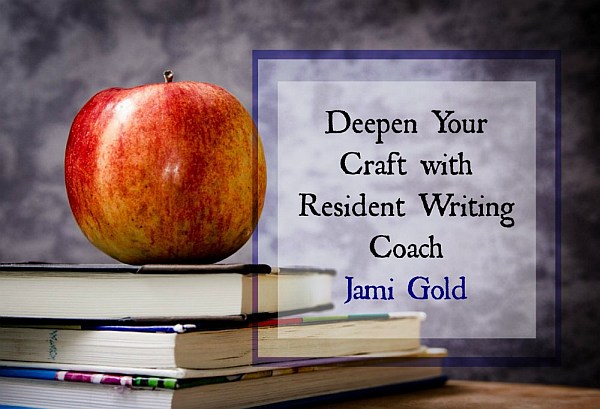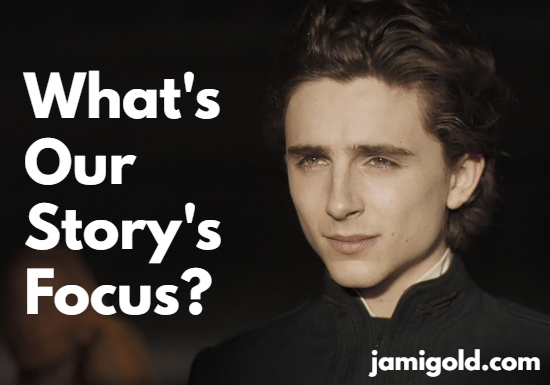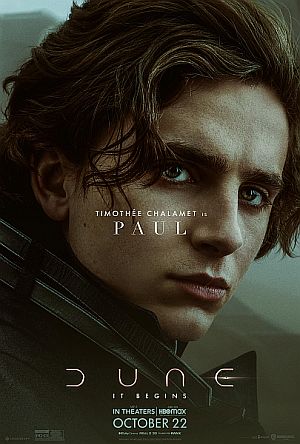Storytelling Expectations: Character vs. Plot Arcs

It’s time for another one of my guest posts over at Angela Ackerman and Becca Puglisi’s Writers Helping Writers site. As one of their Resident Writing Coaches, I’ve previously shared:
- insights on how to approach an overwhelming revision
- how to increase the stakes (the consequences for failure) in our story
- 7 ways to indicate time passage in our stories (and 2 issues to watch out for)
- how to translate story beats to any genre
- how and why we should avoid episodic writing
- how to find and fix unintended themes
- how “plot” holes can sneak into our characters and worldbuilding
- how TV shows can help us learn to hook our readers
- what we can learn from stories that successfully break the rules
- how to ensure revisions aren’t creating rips in our story
- how to create strong story goals that won’t slow our pacing
- how to keep readers supportive through our characters’ changes
- how to use bridging conflict to kick off our story’s momentum
- how to create the right pace for our story (and make it strong)
- how to make the “right” first impression for our character
- what options we have if our story doesn’t fit the usual approach to conflict
- 3 ways to improve our use of tropes (because they aren’t all bad)
- knowing when to treat our setting like a character
- how we can make setting details meaningful rather than boring
- how to fix broken stories by delving into story structure
With this turn for another coaching article at WHW, I’m sharing a few storytelling insights I gleaned from the new Dune movie by Denis Villeneuve, and especially from watching some audience/reviewer reactions to the movie. While doing my best to avoid spoilers for a 56-year-old story, we’re going to look at plot arcs and character arcs, and how our story is affected by which arc we focus on more in our writing. Let’s take a look…

Plot-Arc Focus vs. Character-Arc Focus
Virtually all stories include both a plot arc and a character arc. However, each story will be unique in how much one arc is focused on over the other through our writing.
Some stories will balance the focus between the arcs fairly evenly, and some will barely include one arc to heavily focus on the other. There’s no right or wrong, as it all just depends on the type of story we want to tell.
At the same time, there’s a risk in having readers assume our story is a different type than it really is. Those readers are more likely to be disappointed with our writing and not find the story satisfying. After all, if they were expecting a rollicking, plot-heavy thriller that features death-defying feats and we instead deliver an insightful, tension-filled thriller that dives deep into the human condition, they might not be satisfied, no matter how good our story is.
Case Study: Dune
While the new movie Dune, directed by Denis Villeneuve and released last month, has been well-received by critics and movie-goers alike (with Rotten Tomatoes scores of 82% Critics and 90% Audience at the time of this writing), one of the biggest discrepancies among the movie’s reviews has been a question of whether people find the ending satisfying. To be sure, part of the issue is the fact that the movie is just Dune: Part One, with the second half of the story due in two years, but the debate goes beyond that cliffhanger aspect.
Those who were unsatisfied have used descriptions like “unfinished,” “incomplete,” and “frustrating.” Those complaints sound pretty damning, yet plenty of others didn’t come away with that impression. So what can we learn from those differences of opinion?
What Makes for a Satisfying Ending (especially in a Cliffhanger)?
We’ve talked before about what goes into our story’s Climax and Resolution, as well as what it means to take our readers on an emotional journey with our story:
- In most character-focused stories, readers root for characters to change themselves by correcting their false belief or overcoming whatever fears are holding them back.
- In most plot-focused stories, readers root for the characters to change the world around them by overcoming the plot obstacles.
Either way, people want an emotionally satisfying story as explored in those links, but what does that desire mean for a cliffhanger? For those, let’s define an emotionally satisfying story as one that ends on an emotional turning point related to our story’s goals. Think of Avengers: Infinity War—that movie’s cliffhanger ending gave us both an obligatory-for-Marvel big CGI battle (where in regards to the story’s goals, the heroes lost) and the emotional moment of “the snap” with characters disintegrating before our eyes.
How can we make a cliffhanger ending satisfying to readers? Click To TweetThose are big emotional plot events, however, and not every story has a plot-arc focus. What would a character-arc focused cliffhanger ending include? What would we do as far as creating an emotional turning point related to our story’s goals?
Not surprisingly, the final emotional turning point would likely be a character-focused moment. The plot issues would presumably be unresolved to carry over to the next story. Most importantly, the story goals in a character-arc-focused story usually revolve around character-arc goals, so a cliffhanger ending would probably include the protagonist either:
- temporarily losing their internal battle to overcome their false beliefs/fears (similar to a Black Moment), or
- taking their first steps toward overcoming their false beliefs/fears but not making headway along their new path yet.
How Does Dune’s Ending Compare?
Without going into spoilers, Dune ends on an emotional character-arc turning point. The bigger plot issues (and plot-arc related goals) are left for Part Two, as the final plot event portrayed in Part One is all about revealing character aspects for the protagonist, Paul Atreides.

As befitting a character-focused story, the character-arc goals do reach a major turning point for the cliffhanger ending. Throughout the movie, Paul has been questioning—and fearing—his future. In a line heavily quoted in trailers and other promo, this 15-year-old teenager asks his father (the planet’s ruler, Duke Leto Atreides), “What if I’m not the future of House Atreides?”
What he suspects of his future terrifies him, so he resists following his path. But then… The final plot event occurs, which creates the major character-arc turning point.
Paul foresees his near-immediate death if he doesn’t embrace his destiny, so he makes one life-changing choice in the midst of the Climax’s plot event, forever affecting who he is as a person. Then in the cliffhanger Resolution beat immediately following that event, he makes another life-changing choice to start on the path towards his future, overruling his mother’s plans and goals in order to continue the way he now knows he must.
Is his arc done? No, of course not. He still has to walk his path and do far more growing. At the same time, he still hopes to find a way to avoid the worst tragedies he sees coming in his future. But that’s for Part Two. *smile*
Why Didn’t That Ending Work for Some?
I’m not here to argue that those who were left unsatisfied were “wrong,” as people can feel whatever they feel. However, I do theorize that those who don’t see that there was a “complete” ending—cliffhanger though it may be—might have been expecting a plot-focused story rather than a character-focused story. Therefore, they were left unsatisfied by the unresolved plot-arc issues and might have completely missed the huge character-arc turning point outlined above.
Some may have assumed that the story would be plot-arc focused because of its science-fiction genre. For others, Hans Zimmer’s powerful score might have pushed them too deeply into an action-movie experience to notice any alternative interpretations. For still more, the character-arc turning points might not have made enough of an emotional impression for them to notice those story beats. And some may have assumed the CGI-heavy battle depicted in some scenes of the trailers to be the plot Climax, leading them further down their plot-focused expectations.
Anyone familiar with Denis Villeneuve’s work, such as his movie Arrival, which I’ve written about before, could have guessed the story would unfold on a more subtle, character-focused playing field. However, my point is that Dune, as agreed upon by many who viewed the movie, is emotionally satisfying, but at the character-arc level. And if that’s different from what some expected, it’s possible that’s why they missed the full experience.
Why did many reviewers disagree about whether the Dune movie's ending was emotionally satisfying? Click To TweetAgain, that doesn’t make their experience “wrong.” Those who didn’t catch the character-arc turning points might have had a different experience if Denis had included more obvious musical cues, used acting choices or camera zoom compositions that emphasized the dramatic moments, or employed other techniques unique to moviemaking.
In the medium of movies, a character-arc focus is usually going to be more subtle than in the medium of books. Books can use internal dialogue and point of view to reveal character-arc moments. Most movies don’t use voiceovers to spell things out for the audience, so viewers need to pay deeper attention to the underlying situation and acting.
Either in books or movies, character-focused stories are more open to interpretation and therefore are more likely to evoke a variety of opinions. That’s not a failure of the story, as that interpretation aspect is why some prefer character-focused stories. However, it does give us something to think about when it comes to our own storytelling, especially if we want to avoid misleading readers.
Communicating Story Focus Can Be Tricky
If we’ve shared our work with others, we know we can’t control others’ interpretation of our writing. Beta readers and editors can help us see many places where we might lead readers astray, but as every reader comes to our story with different experiences/histories and mental/emotional triggers, we can’t prevent every misunderstanding.
In the case of Dune, we could debate whether the marketing did enough to properly set expectations. For example, the marketing posters and trailers didn’t list “Part One” with the title, so some might not have been expecting a cliffhanger at all. Others might say that the trailers didn’t do enough to make the character focus clear, but there’s another layer of complexity to Dune in this regard, which might also apply to our stories as well.
As we talked about here before, we can mix and match our story’s drive and focus. I’d call the Dune movie a plot-driven and character-focused story. In general, plot events (rather than character choices) give the story its narrative drive, pushing the story forward, yet those same plot events fade into the background when determining what the story is about.
How can we set reader expectations about the type of story we're telling? Click To TweetThese types of stories can make setting audience expectations especially tricky. (Believe me, I know, as this is the type of story I tend to write. *smile*) Much like stories with a focus fairly balanced between the arcs, neither arc in a mix-and-matched drive vs. focus story can be minimized in an accurate description.
In the case of Dune, the trailers had to include elements of the overall plot arc, as that’s what triggers the character arc. Interestingly, however, half of the voiceover and dialogue in the trailer embedded above doesn’t occur in the movie, as the plot points are instead shown and not told. It’s only for the sake of the trailer making story-sense that they had to be told, and that’s the same “avoid using too much subtlety and subtext” situation we can run into with our queries and book descriptions.
Like with the reaction to Dune, there’s no “getting this right” with our own stories. Any time we’re talking about balance, there’s no perfect, right answer. Potentially, we can get help from others to double check our instincts, but in the end, all we can do is make our best guess.
Writers Helping Writers: Resident Writing Coach Program
What’s Your Story’s Focus? Plot vs. Character Arcs
Come join me at WHW above, where I’m sharing more about plot focus vs. character focus, including:
- what “focus” looks like in our stories
- the difference between balanced vs. unbalanced focus between the arcs
- how we can usually determine which arc has focus in our story
- how knowing our story’s focus can help us during drafting and editing
- how our story’s focus might affect our marketing efforts
Do you know which arc has focus in your stories? How does that focus affect your writing, editing, and/or marketing? If you’ve seen the new Dune movie, what was your impression of the movie and the ending? If you haven’t seen it, what was your impression of the story from the marketing? Do you have any questions about this topic? (My WHW posts are limited in word count, but I’m happy to go deeper here if anyone wants more info. *smile*)

[…] so using the right marketing focus isn’t a guarantee to avoid reader disappointment. (Check out my companion post to this one on how the new Dune movie by Denis Villeneuve is an interesting example of a character-focused […]
Thanks, I enjoyed the film. And as you say, I noticed the trailer has explanatory dialogue (but heard, not seen) which does not occur in the film.